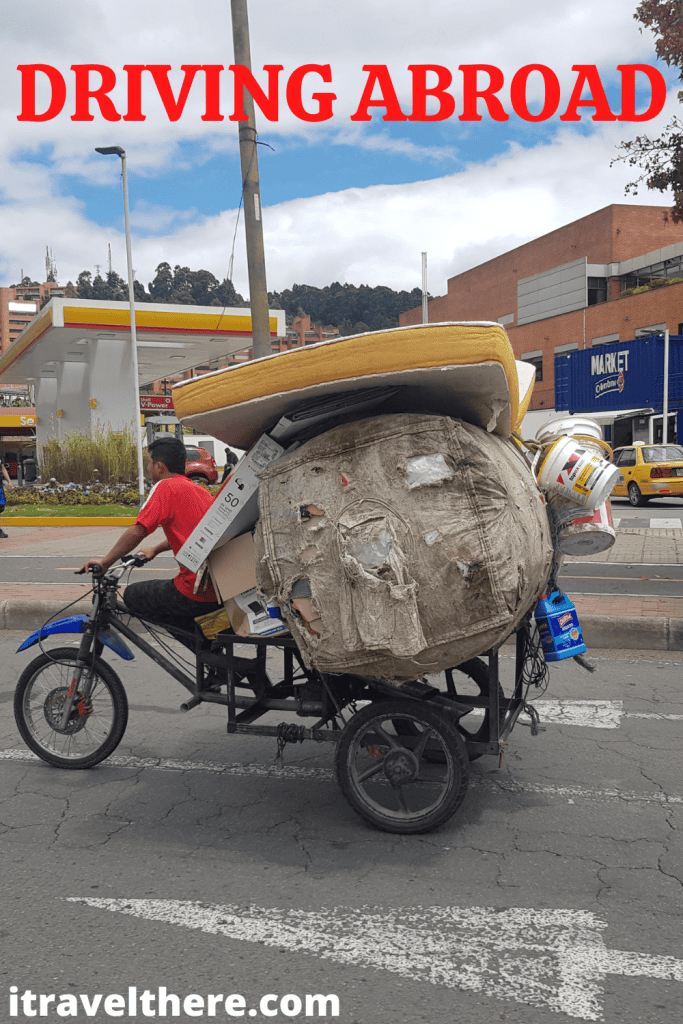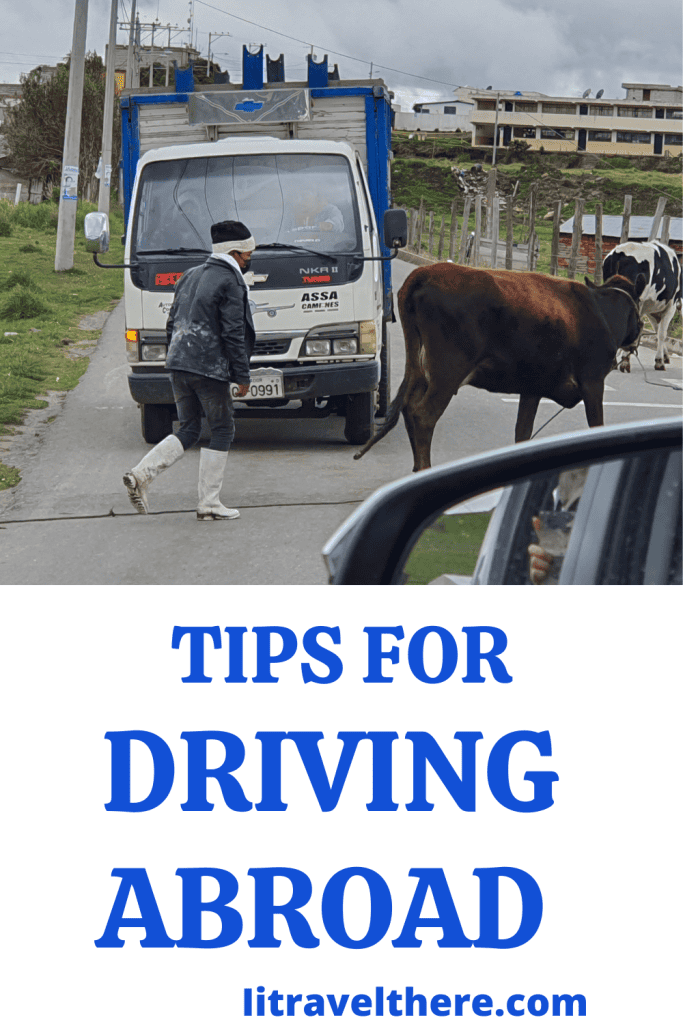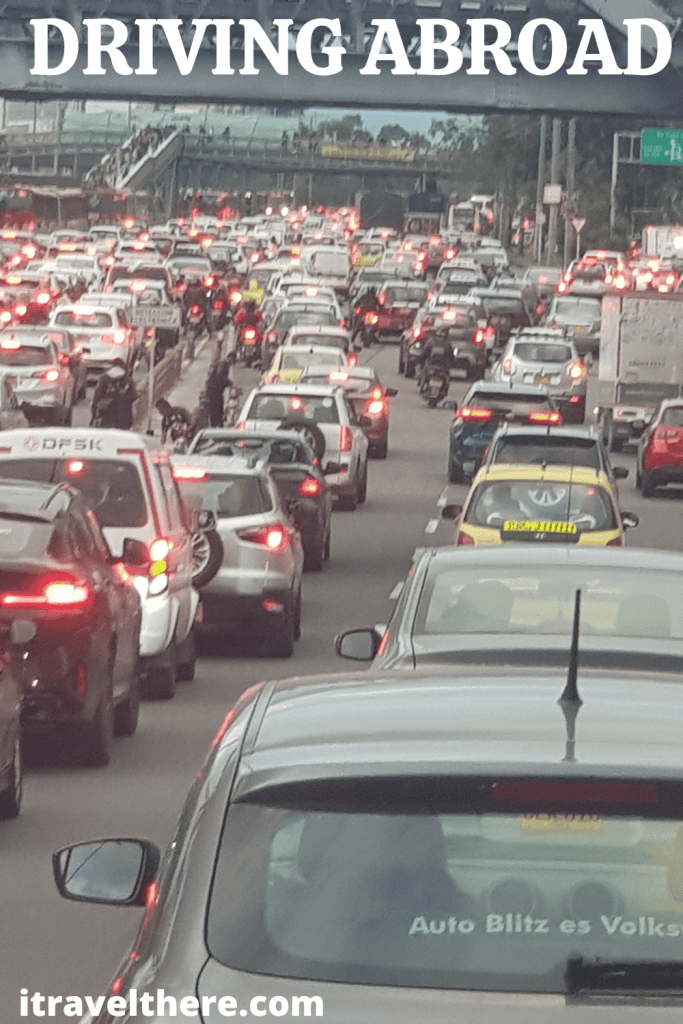Driving Abroad
Ever dreamed of cruising along the west coast of Australia, or navigating the streets of Seoul? Driving abroad can be both thrilling and nerve-wracking, but it can open the doors to more sights than you ever imagined. It's your ticket to ultimate travel freedom.
Many people advice against driving while abroad but I disagree. If anything, it will for sure make you a better driver (but you may give a few more gray hairs!) I have always driven while abroad, and always gotten my license for the country I was living in.
I drive both a car and a motorcycle daily. I can't imagine not having that freedom. I talk about this also in my post Steps for Moving Abroad.
But people have questions when it comes to driving abroad. “Can I use a U.S. driver’s license abroad?” “Do I want to drive abroad?”
Driving in a different country can be an adventure in itself. It really depends on the country where you will be. From experience, I can give you a few ways to ensure you are ready for all you need to remember when doing so.
Should You Drive Abroad?
The first time I drove abroad was while I was in New Zealand. The hostel I was staying at needed a camper driven from Auckland to down south. In return, a rental car for one week was being offered. I jumped at the opportunity.
Although I had never driven a camper, nor on the opposite of the road with the shift on the opposite side of the car, I was in my 20s and an adventurer. It ended working out just fine as I adapted quickly.
I then had a rental car for a week and it was AMAZING. With that confidence I rented a car in Australia, where I learned instead of watching out for deer, I had to be careful of kangaroos.
As my driving abroad has given me adventures, let's look at what it really entails.
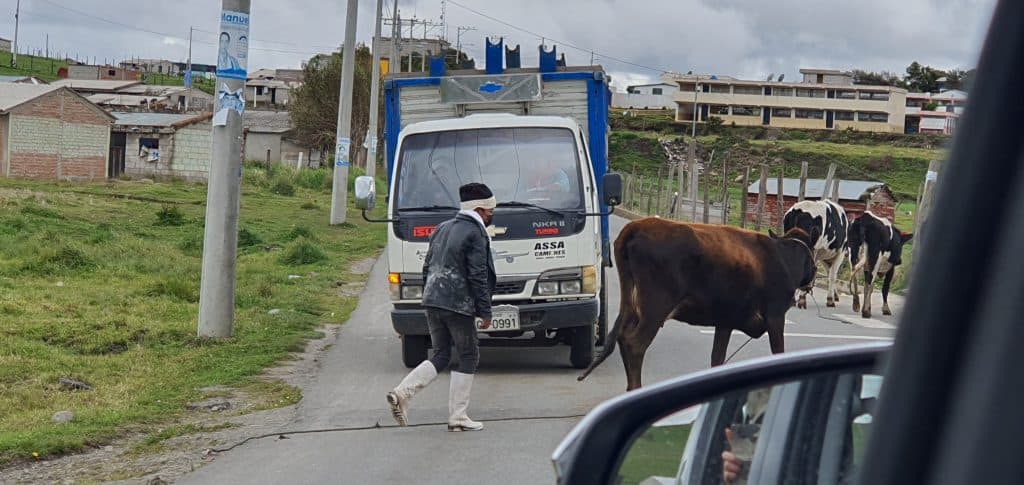
Pros
- Convenience – When you are driving, you can go to places that at the time you want to go. Do you want to leave early? You can do what is best for you!
- Flexibility – Sometimes, you want to stop often on the way to your destination or drive straight there. Either way, you can be spontaneous in the journey and tailor your trip to your interest.
- Accessibility – If you need to reach places that a bus or train may not go or if you have something specific that you want to see, driving yourself can guarantee you will get there!
- Comfort – If you need extra space, get sick if you sit in the back of a bus, or enjoy putting the window down, then a car will be your best bet. Sometimes public transportation can have smaller seats also.
- Reckless drivers driving you – Although you may be a foreigner and driving in a foreign land has its risks, sometimes you have drivers of buses or taxis that can be reckless. It can be a harrowing experience if you have to cross a pass over the mountain and your bus driver is passing other buses along the way.
Cons
- Cost – While having a car is convenient for all the reasons above, it can be more expensive. You will need to consider the car rental, insurance, gasoline, tolls, maintenance, and parking.
- Other drivers – You have to get used to how people drive in another city and country. Some could be more aggressive than others.
- Parking – If you have a car, you must be attentive to where your car is, if you have to pay for parking, and where parking is. Stolen cars are a problem everywhere, but making smart decisions on where to have the car can make a significant difference. I can't tell you how many stolen cars I have searched for for friends.
- Different traffic laws – Do you need a helmet? Can you ride in the back of a pickup truck? Research ahead of time as many things vary between countries.
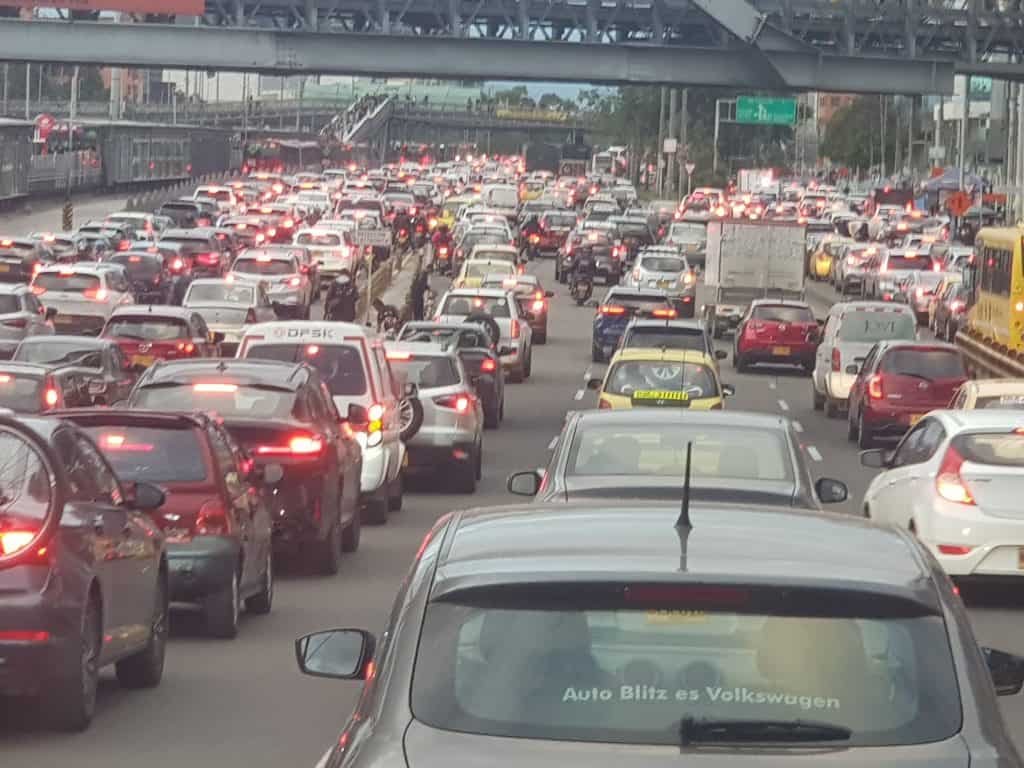
How to Go About Driving Abroad
If you want to drive abroad, it helps if you already have your license from your native country. This means you have studied the rules of the road and have a feeling of driving. There are ways to drive as a foreigner in other countries:
Get Your License There
You will have to take the exam. Many countries offer the driver’s exam in other languages. You will have to study the laws and take the practice driving and eye tests. Some countries have more exams and a physical check-up.
As I mentioned, I have taken the exam multiple times in multiple countries. It doesn't have to be so daunting, you just have to study.
International Driving Permit (IDP)
An International Driving Permit is an official translation of your driver’s license. It allows you to drive abroad without further testing of documentation. It is typically issued in the same country that issued your driver’s license.
You must have a driver’s license, and the IDP is used in conjunction. It is important to see if the country you travel to accepts IDPs. For the USA, you can check here:
https://www.dmv.org/international-driver-permits.php
The requirements that are stated are:
- You must be 18 years old to apply.
- Carry both the IDP and your valid driver’s license when driving abroad.
- Obtain your IDP from the same country that issued your driver’s license.
- You may not use your IDP to drive within the country where it was given.
- Your IDP is valid with a U.S. driver’s license for up to 1 year from the date it is issued.
- You cannot renew your IDP, but you can apply for a new permit when necessary.
Mutual Agreements
Check to see if your country has an agreement with others. For example, US citizens can drive in Canada and Mexico with their US licenses. Other countries also may allow you to use your US driver’s license for up to 6 months, but you must research this beforehand.
My friends, Sadie and Kevin, have lots of experience when driving to Mexico from the USA. You can check out their travels here.
Rental Cars
Before renting and driving a car off the lot, take pictures of the vehicle from every angle. You could be charged for something you did not do, so you need the pictures for confirmation.
Get recommendations of which car rental company to go with. You can find that out in many Facebook groups for expats for the country you are going to.
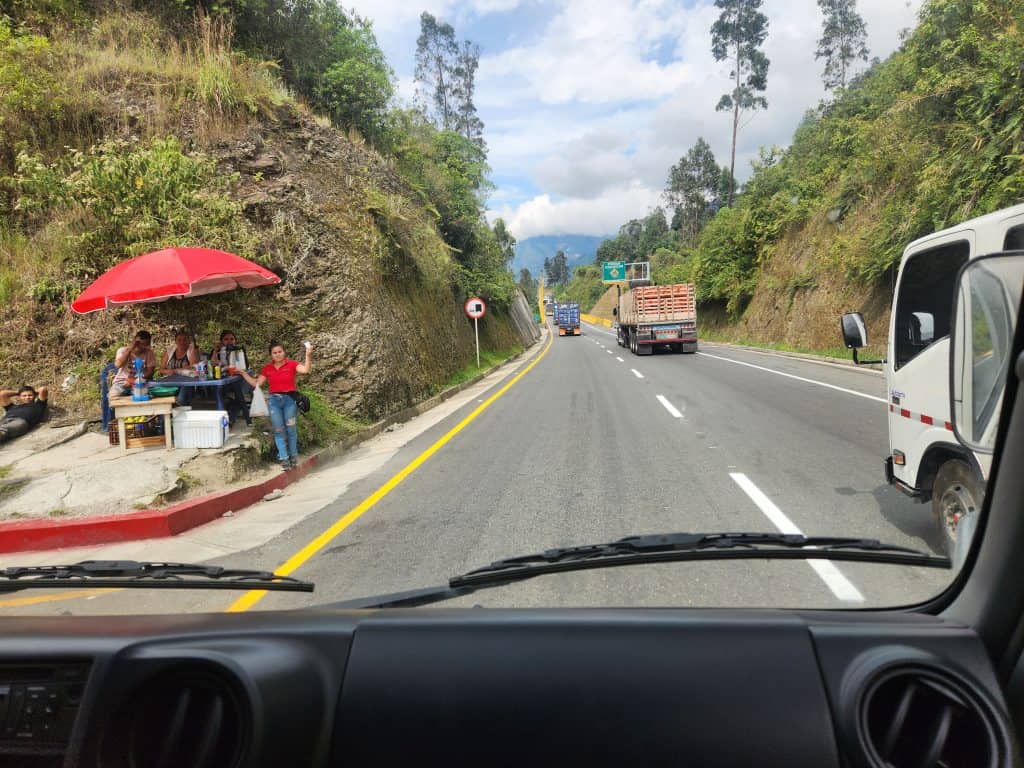
What To Expect
Adapting to Different Driving Orientations
Suppose you travel to a country where people drive on the other side of the car and the other side of the road from which you are accustomed; you will have to adapt. I found driving on the other side of the car even more comfortable than I envisioned. You never know!
But always, always, always stay attentive when driving on the other side of the road. Constantly remember on which side you need to be and where you need to look for oncoming traffic. Many people are just on auto-pilot when they drive at home, so this kind of change can be drastic!
Road Conditions and Infrastructure
How roads are taken care of depends on the money available to do so. Weather conditions can cause landslides or bridges that fall. You just don’t want to be in the wrong place at the wrong time.
Between Google Maps and Waze you will have a good idea of where to go. Be flexible time-wise and patient. It is always good to plan for a little extra time.
Tolls are often a high cost in some countries, and you have to stop to pay them frequently. Know ahead of time if that is true where you are traveling.
Driving Etiquette and Cultural Differences
Driving etiquette in other countries can vary, as it can even vary in your native country. For example, you can drive in the craziness of a capital city but never hear people honking their horns. It just is not done in some places.
In some countries, when there is an accident, each person involved apologizes. In other countries, if you apologize, you admit it was your fault. This depends on the country.
Road rage is everywhere and remember when you are on the road and driving abroad, you are a foreigner. It is best to not get involved in road rage anywhere, but especially in another country.
Language and Communication
Even if you can take an exam in your native language, at least know the names of a few essential things that can be mentioned in the foreign language. I have some tips to check out here.
There is always a point where you can get lost in communication also. An example is when I went to get my license and was asked about my blood type, as it is written on it. I hesitated, thinking, and expressed an “ah, um,” and the man behind the desk took that as Type A. I am not Type A blood, so I had to put a sticker on top of the license until it was renewed later!
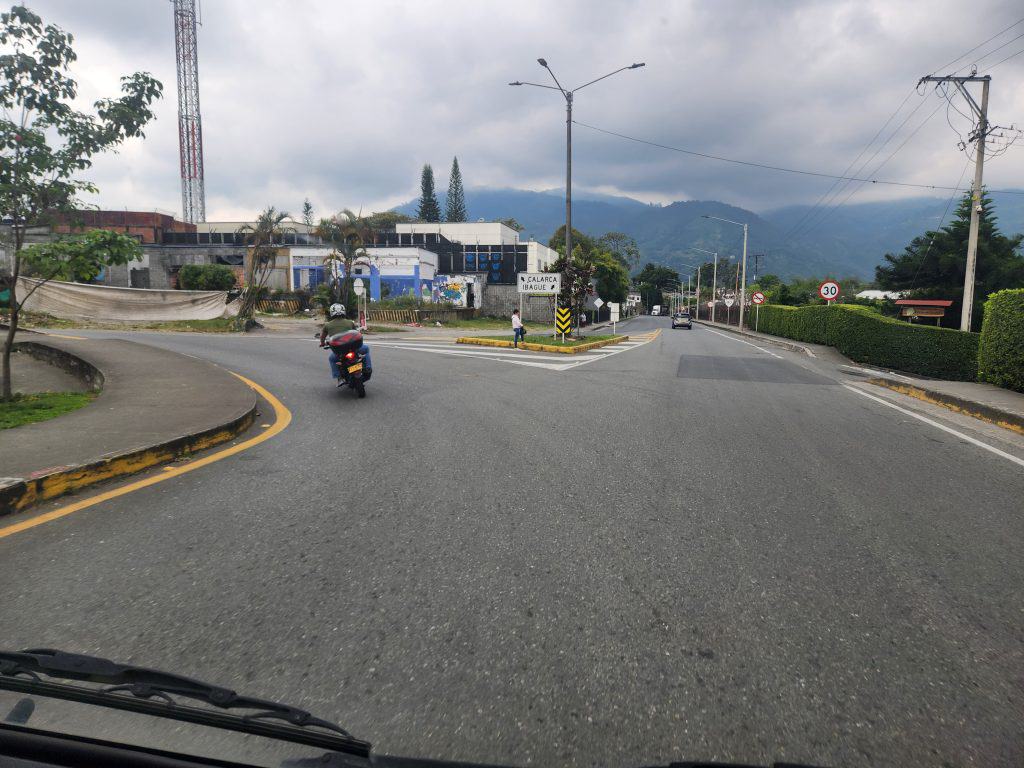
Motorcycles
Driving a motorcycle abroad is a wonderful way to see a country and get around the city with lots of traffic. Getting a license for a motorcycle is similar to getting a license for a car. Depending on the engine size, you can also drive a scooter in many areas without a license. Confirm this with where you are going.
Insurance
Usually, your driver’s insurance at home will not cover you abroad. You need to ask them.
Car rental companies overseas usually will have insurance available. Look at what is offered and see if you feel comfortable with it, or you may want to consider getting more coverage.
Your best bet is to ask other foreigners who are there what they are using for their bought or rented cars. Again, Facebook groups are an excellent resource for this.
Safety and Security
Alerts
Sign up for alerts from your embassy or consulate while traveling abroad. These will let you know if there are protests, landslides, or other climate or political factors to consider when planning to travel to a particular area.
Safety Considerations and Tips
Drive defensively always. Other drivers can be very aggressive.
Have quick access to small bills in the currency of where you are. Sometimes you will be in a situation where you need to use that money instead of going into your wallet so people see where you have your money.
Plan in advance and know what to do in case of an emergency.
If you have more questions, especially if you have a specific situation, go to https://travel.state.gov/content/travel/en/international-travel/before-you-go/driving-and-road-safety.html, and hopefully, you can find the answer there.
Here are what to always keep in mind when driving abroad:
- Research Local Driving Laws: Don't assume anything! Be prepared for the unexpected. Each country has unique rules that can surprise you.
- Understand Insurance Coverage: Know what your policy covers and what it doesn't, so you’re not left guessing in an emergency.
- Plan for Unexpected Costs: Tolls, parking fees, and unexpected fines can add up. Keep some local currency on hand.
- Stay Calm and Flexible: Driving abroad can be stressful. Try to keep an open mind and embrace the adventure as it’s all part of the experience!
- Watch Out for Roadside Hazards: From animals to unexpected road conditions, stay alert and adapt to local driving habits.
- Learn Essential Phrases: Knowing how to say “gas station” or “help” in the local language can be a lifesaver.
- Be Prepared for Different Driving Styles: Expect aggressive drivers in some countries or super-polite ones in others. Adapt accordingly!
- GPS Isn’t Always Reliable: Keep a paper map handy for those “no signal” moments or detours.
Driving abroad is an adventure waiting to happen. With a little prep, and a little courage, you can explore beyond the usual tourist spots and truly experience the heart of a country. So, ready to hit the road? Safe travels!
FAQs
Q: Do I need an International Driver’s License (IDP) to drive abroad?
A: For most cases, yes. Research the requirements of your destination to ensure compliance.
Q: Are there specific traffic laws to be aware of?
A: Traffic laws vary from country to country. Familiarize yourself with the local rules, such as speed limits, seatbelt requirements, and anything different from what you are used to.
Q: Do I need a car when I travel abroad?
That depends on your preference. You may not see the need if you are in a place with public transportation, taxis, or Uber. If you are staying long-term and have the money, you may prefer the convenience of a car.
If you enjoyed this, please save one of these pins to your favorite travel boards on Pinterest.

